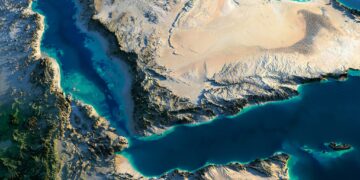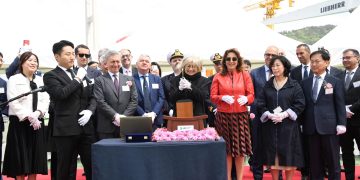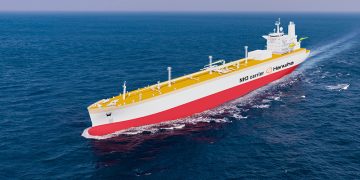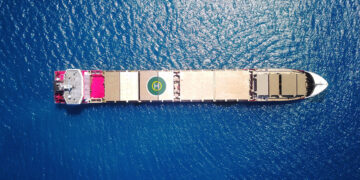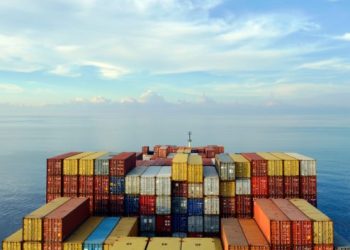The World Health Organisation (WHO) has declared COVID-19 a pandemic. 187 countries are affected by the pandemic and the number of confirmed cases stand in the hundreds of thousands. These trying times are likely to persist and measures adopted globally such as travel restrictions are bound to affect us, argue Michael Hughes, Claims Executive and Rahul Sapra, Senior Surveyor of Standard Club.
In these critical times, the maritime industry and seafarers are on the frontline, ensuring essential supplies reaches those in need. Limited access to information, resources and medical aid coupled with being away from their families will undoubtedly exacerbate seafarers’ stress and anxiety. Another cause for seafarers’ worries should also be the slowing global traction on cross border employment and travel. If that does not ease up, there will come a point when many seafarers’ contracts are expiring and due for renewal at the same time, and it will pose a safety hazard if a large number of the crew on board is changed simultaneously over a short period of time.
Below are some suggestions for members consider and adopt to further support seafarers during these unprecedented times. However, seafarers must remain mentally and physically prepared to face new challenges and adapt their usual practise to consider the correct habits in order to combat COVID-19 and its spread.
Coronavirus Management Plan (CMP)
WHO advice
COVID-19 spreads rapidly, particularly on ships where seafarers live in a close environment. It is critical that the advice from WHO on how to prevent the spread of the virus is shared with the crew, and controls which enforce adequate checks are in place to ensure personal and public hygiene are maintained at all times.
One option could be to complete formalities without coming face to face. We do recognize that certain aspects will require port officials, pilots etc to come onboard, so the crew should be trained to maintain social distancing, check for symptoms of all visitors and use appropriate PPE. Pre-boarding information and screening is essential to ensure crew’s safety.
IMO recommendations
The IMO have recommended that vessels have a written plan for dealing with suspected cases of coronavirus on board the vessel. Crew should familiarise themselves with it so that they can direct the implementation when required.
The plan should cover:
- the location(s) where suspected cases will be isolated individually until disembarkation and transfer to a healthcare facility
- how the necessary communications between departments about persons in isolation will be managed
- the clinical management of suspected cases while they remain on board
- cleaning and disinfection procedures for potentially contaminated areas, including the isolation cabins or areas
- how close contacts of the suspected case will be managed
- procedures to collect Passenger/Crew Locator Forms (PLF)
- how food service and utensils, waste management services and laundry will be provided to isolated crew
- instructions on how and when to seek medical advice and who to inform
- use of Maritime Declaration of Health.
ICS has published guidelines on ensuring that the infected person is isolated and given medical care until they can be transferred to a medical facility. Key considerations would be the repatriation and/or quarantine of the crew. Depending on the requirements of the local authorities, there could be restrictions and it is a possibility that the ship would not be allowed to enter the port if a crew member onboard is infected.
While the shipping community deals with this unprecedented situation it is vital that we don’t lose focus on our primary responsibility for carrying cargo safely. With the increasing number of restrictions, ship owners and managers need to prepare and plan in advance to ensure that this is done smoothly.
Other key challenges facing the industry during this period are to ensure:
- audits and inspections are carried out on schedule
- maintenance of safety and critical items is not neglected
- adequate anti-piracy measures are in place due to challenges in embarking and disembarking private security guards
- avoiding delays in scheduling dry docks and installation of scrubbers or Ballast water treatment systems
- crew repatriation/changes
- providing adequate stores, provisions, fresh water, medical supplies etc
- getting pilots, port clearances and assistance in ports
- the application of Force Majeure and Unsafe port/berth clauses
Various shipping bodies such as the OCIMF, BIMCO, INTERCARGO, ITF, ICS, INTERTANKO, classification societies etc have issued statements to provide guidance and support. We all need to have a pragmatic approach in ensuring that the world does not stop.
P&I clubs are here to support their members in any way possible. Members should contact their usual club contact, should they require assistance. We all have a part to play in making this period as manageable as possible, through supporting one another, working in close partnership following all health-related and business continuity guidance. We will need to adapt our working practices to ensure that we are able to maintain energy levels and morale during this difficult period.
The views presented hereabove are only those of the author and not necessarily those of SAFETY4SEA and are for information sharing and discussion purposes only.
Michael Hughes, Claims Executive, Standard Club
 Michael joined Charles Taylor in 2014 as a Claims Executive and has expertise in people claims. He has a BA (Hons) English from The University of Exeter, 2006 and a Graduate Diploma in Law from The College of Law, 2007. In 2008 he attended Legal Practice Course at The College of Law where he trained as a solicitor, qualifying in February 2012. Before joining the Club, he worked at regional and London law firms specialising in personal injury, industrial disease and general litigation
Michael joined Charles Taylor in 2014 as a Claims Executive and has expertise in people claims. He has a BA (Hons) English from The University of Exeter, 2006 and a Graduate Diploma in Law from The College of Law, 2007. In 2008 he attended Legal Practice Course at The College of Law where he trained as a solicitor, qualifying in February 2012. Before joining the Club, he worked at regional and London law firms specialising in personal injury, industrial disease and general litigation
Rahul Sapra, Senior Surveyor, Standard Club
 Rahul joined Charles Taylor in July 2013 as Marine Surveyor, based in Singapore. Previously, he worked as a Class I Master Mariner Foreign Going and has extensive senior experience on oil tankers and VLCCs. He has been also Marine Superintendent for oil/chemical tankers and P&I surveyor for various International Group P&I Clubs. Rahul is an Independent Marine Consultant, including Navigation audits, SIRE vetting inspections, ISM/ISPS audits.
Rahul joined Charles Taylor in July 2013 as Marine Surveyor, based in Singapore. Previously, he worked as a Class I Master Mariner Foreign Going and has extensive senior experience on oil tankers and VLCCs. He has been also Marine Superintendent for oil/chemical tankers and P&I surveyor for various International Group P&I Clubs. Rahul is an Independent Marine Consultant, including Navigation audits, SIRE vetting inspections, ISM/ISPS audits.




